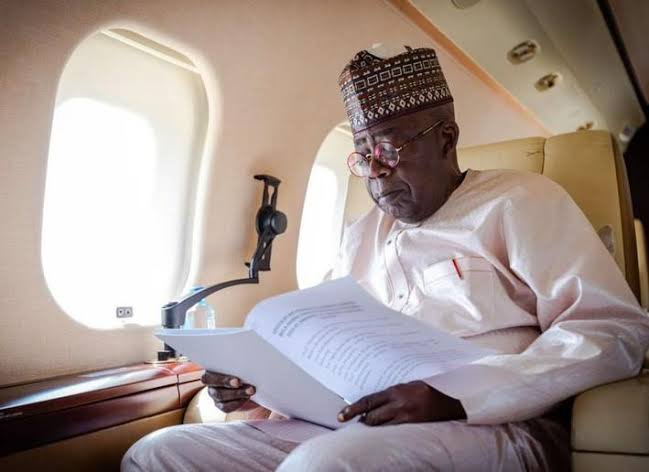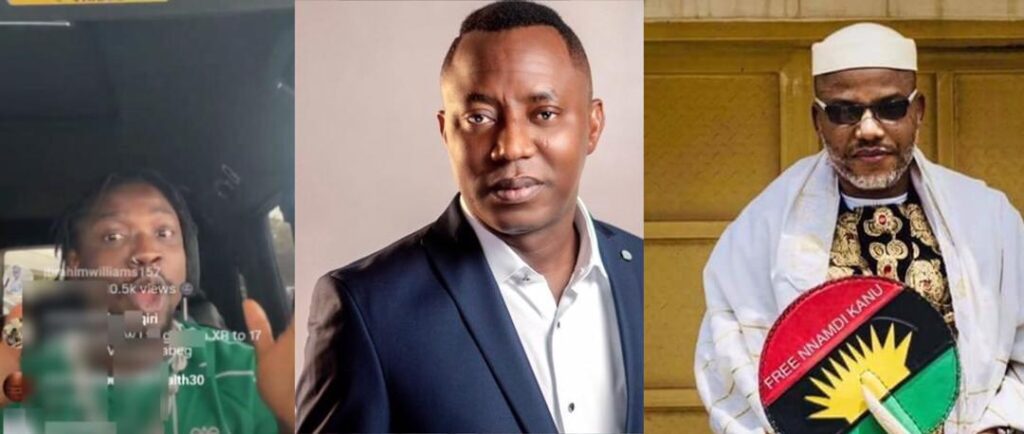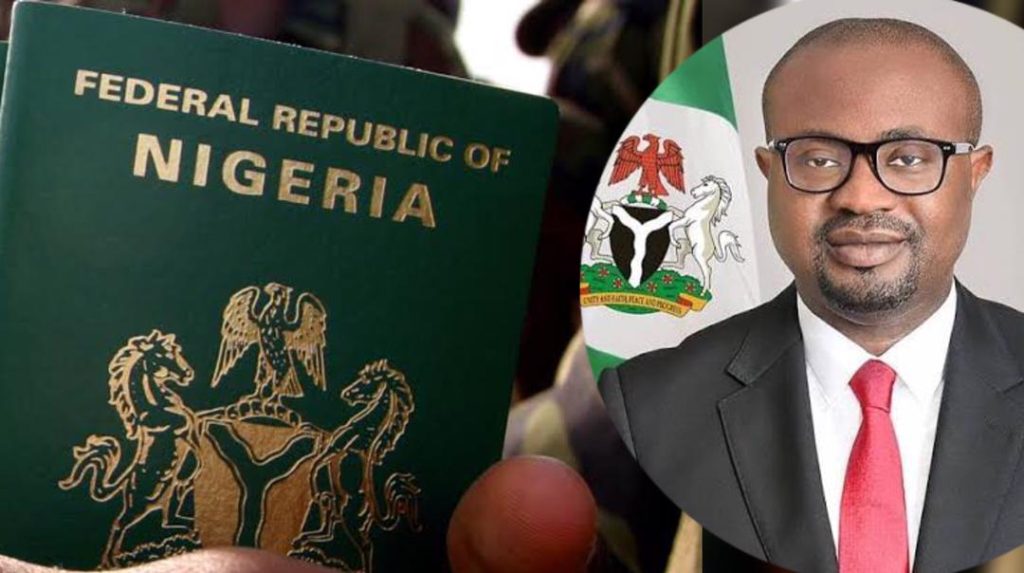Now Reading: President Tinubu Back in Abuja After Foreign Trip
-
01
President Tinubu Back in Abuja After Foreign Trip
President Tinubu Back in Abuja After Foreign Trip

President Bola Ahmed Tinubu has returned to Abuja following a two-week diplomatic visit to Saint Lucia and Brazil. His return was confirmed on Saturday by his Special Adviser on Media and Publicity, Bayo Onanuga, via a post on X (formerly Twitter).
First Stop: Saint Lucia

Tinubu In St Lucia For Diplomatic Engagement, Not For Vacation — Presidency
President Tinubu arrived in Saint Lucia on June 29 for an official visit, where he was hosted by Prime Minister Philip J. Pierre and other Caribbean leaders. His discussions centered on improving trade, promoting tourism, climate resilience, and strengthening cultural ties between Nigeria and CARICOM nations.
The visit was part of Nigeria’s effort to build stronger South–South relations and enhance its presence in the Caribbean.
Second Stop: Brazil

Tinubu departs Brazil after BRICS summit – FRCN HQ
From Saint Lucia, Tinubu travelled to Brazil to attend the BRICS Summit in Rio de Janeiro, held from July 5 to 7. According to The Nation, the Nigerian president held bilateral meetings with Brazilian President Luiz Inácio Lula da Silva and other leaders, focusing on energy, agriculture, and trade investments.
These talks align with Tinubu’s “Renewed Hope Agenda,” which prioritizes attracting foreign investment and infrastructure partnerships.
Flight & Confirmation

Tinubu departed from Rio’s Galeão International Airport
According to PM News, Tinubu departed from Rio’s Galeão International Airport at 12:50 PM local time and touched down in Abuja early Sunday morning. The presidential jet, a BBJ T7‑NAS, landed at about 2:50 AM.
Bayo Onanuga posted shortly after:
“President Bola Ahmed Tinubu returns to Abuja today after his two-nation visit to Saint Lucia and Brazil.”
Why This Trip Matters
Tinubu has made over 40 foreign visits to 28 countries since assuming office in May 2023. His recent trip highlights:
-
Improved Nigeria-Caribbean ties: Boosting cultural, climate, and trade partnerships.
-
Brazil engagement: Tapping into opportunities in energy and agriculture.
-
Increased visibility for Nigeria in global South diplomacy.
According to Vanguard, Tinubu’s attendance at the BRICS Summit signals Nigeria’s intent to collaborate more with emerging economies, especially in trade and renewable energy.
Quote from the Presidency

A source close to the presidency noted:
“The trip was strategic. Nigeria is expanding its international network beyond the usual, and this opens doors for new trade and investment channels.”
Final Thoughts
With President Tinubu’s return, all eyes now turn to the real impact of his latest diplomatic mission. While official statements highlight the tour’s strategic significance, Nigerians are eager to see how these high-level engagements will translate into concrete benefits on the ground be it in the form of job opportunities, foreign investment, or enhanced global partnerships.
His visit to Saint Lucia showcased Nigeria’s renewed interest in deepening its global cultural footprint, as the Caribbean remains a vital region historically tied to Africa. The cultural diplomacy and economic discussions held there could pave the way for stronger people-to-people connections, tourism collaboration, and climate action partnerships. For a country like Nigeria facing increasing climate challenges, such alliances could become vital in the near future.
In Brazil, Tinubu’s participation at the BRICS Summit was not just symbolic it was a power move. By engaging with leaders from major emerging economies like Brazil, Russia, India, China, and South Africa, the Nigerian president is signaling a shift toward multi-polar diplomacy—less reliance on the West and more collaboration with fast-growing economies. This could unlock new infrastructure funding, agricultural technology, and renewable energy investments.

The president’s continued travels have drawn both praise and criticism back home. While some Nigerians feel more emphasis should be placed on internal development, others believe these trips are essential to reposition Nigeria on the global map. One thing is clear: Tinubu is betting big on diplomacy as a tool for national transformation.
“This is not tourism it’s strategic engagement,” said a senior official in the Foreign Affairs Ministry. “Nigeria is rebranding itself abroad to attract long-term investment and partnership.”
As Nigerians await the implementation of the agreements and promises made abroad, the question remains: will this international outreach bring the Renewed Hope Tinubu promised during his campaign? Only time and results will tell.





